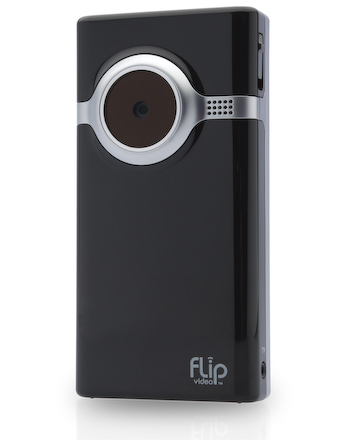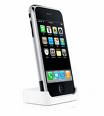 |
 |
| Laptops vs. Netbooks |
|
 Netbooks
are creeping up on laptops, ready to take over the portable computer
world – but are they as ideal as their manufacturers would have you
believe? It depends on what you are looking for. Netbooks
are creeping up on laptops, ready to take over the portable computer
world – but are they as ideal as their manufacturers would have you
believe? It depends on what you are looking for.
While some argue that the primary difference is the size of the
computer – with laptops ranging from the 17” to the 10”, many people
will tell you that beyond traveling, size does not a computer make.
Netbooks are small and sleek for good reason – they are often not
packed with the same amount of memory and storage space, nor do they
come with the wide variety of programs that are available on laptops.
Don’t envision life playing World of Warcraft on a netbook.
Again, it depends on what you are looking for. If you can handle the
small screens, and are like the many people for whom task capability is
irrelevant; that is, you basically just want a portable connection to
the internet that is easy to see and use, with some basic programs,
then the netbook is for you.
Another factor? Netbooks are limited in their operating and storage
configurations, leaving purchasers a choice of either Linux and a Solid
State Drive, or Windows XP and a Traditional Hard Drive – there is no
purgatory here.
|
|
 |
 |
 For
every new development in technology, there are associated risks – and
often it’s a learning curve where potential holes are discovered first
through exploitation. With the majority of people relying on the
internet and computers for personal information, banking, bills, and
shopping, it’s very easy to compromise your personal security. When you
consider the amount of personal information stored on your home
computer, your laptop, your work computer, PDA, cell phone, smart
phone, and the internet, it can be pretty overwhelming. Fortunately,
there is a lot you can do to protect yourself from identity theft. For
every new development in technology, there are associated risks – and
often it’s a learning curve where potential holes are discovered first
through exploitation. With the majority of people relying on the
internet and computers for personal information, banking, bills, and
shopping, it’s very easy to compromise your personal security. When you
consider the amount of personal information stored on your home
computer, your laptop, your work computer, PDA, cell phone, smart
phone, and the internet, it can be pretty overwhelming. Fortunately,
there is a lot you can do to protect yourself from identity theft.
Use passwords.
This is a standard practice these days on the internet, but you should
use them as much as possible on your personal computers, PDAs and smart
phones as well, in case they are stolen. Use a small number of unique,
memorable passwords and change them regularly. Avoid writing them down
anywhere. Another tip: for the highest security, don’t have your system
or any websites remember your password. It will remember your password
for criminals trying to access your personal information as well.
Maintain your computer.
Use high quality anti-virus software that updates regularly. Viruses
can harm your computer, but they can also install backdoors that allow
thieves to access personal information. Other musts for your computer:
keep your operating system software updated and install a firewall.
Be safe on the internet.
Take precautions with wireless networks (Wi-Fi). They are often an easy
way for others to see what you are doing on the internet. Use your
personal connection for secure transactions. Do not do anything private
on public kiosks, as they might have malicious programming installed,
without the knowledge of the owners. This software logs all your
keystrokes, and will give thieves access to whatever you do on that
computer. Beware of phishing scams, and never open files you don’t
completely trust.
It’s a dangerous world out there, especially
when it comes to the security of your private information. You can
never be too careful!
|
|
 |
 |
Without
a doubt, the cleanest technology is that which uses our natural
resources with no by-products of waste. Even more ideal is when that
technology produces a good amount of energy for the investment made,
and is fairly quick to build. Enter Solar Power Plants.
Plants
can generally be built in a few years because solar plants are built
almost entirely with modular, readily available materials, and today,
the technology has new incentive to skyrocket, the industry is growing
in leaps and bounds, setting new records at every turn.
The new
Rote Jahne in Germany is now the largest thin-film solar power plant in
the world, boasting an output capacity of 6 megawatts. It uses 90,000
Thin-film solar modules, which are less expensive than their
crystalline counterparts, and produce more energy per unit of installed
capacity. Built on a former airfield, the module surface area comprises
a mere 16.5 acres.
In the US, contracts are signed with power
plant operator NRG Energy and start-up eSolar to build 11 solar power
plants in the Southwest U.S., leading to 500 megawatts of solar energy
– which is enough to power 400,000 homes. The first plant is expected
to begin operations in 2011. ESolar is also bringing something new to
the table – a break from the traditional trough system, which is the
typical receiving method used by most solar power plants. Instead, it
has designed heliostat and thermal receivers, which reduces the cost by
using prefabricated heliostats.
With the technology growing,
and new incentives from across the globe, it seems to be a veritable
race to find the most efficient, cost-effective method for harnessing
the energy capabilities of the sun.
|
|
 |
|
|
|
 |
|
In this Issue:
|
|
 |
|
Contact Information
|
Name
Phone
Website
|

|
|
Tech Gadgets under for $500 or Less
|
- Netbooks. Several models range between $300 and $500, without skimping on quality.
-
Digital camcorders. You may be surprised to know that pocket varieties
come in under $200 – much cheaper than their predecessors.
-
GPS. Turn by turn navigation systems are coming down in cost – TomTom
starts around $125, with several models and brands available for under
$500.
- Upgraded power strips. Boring, I know – but $100 can
save you a bundle on wasted electricity that gets used by electronics
even when they are off. Power strips like Monster power are
programmable, so they can turn off the power for you.
- Portable
Media Player. There are several models of MP3 players under $50, let
alone $500 – splurge a little and go for more storage capacity, and
maybe video players as well. There are dozens to choose from.

|

|
|
Tech-Fit
|
|
Technology has made it easier
to get fit and track your progress. So why are 60% of Americans still not
getting regular exercise? Here are a few gadgets to help you get into shape:
-
Wii Fit. The most obvious, Wii Fit gives you the option of yoga,
balance, strength training, or aerobics, and can be found for under $150 –
which is less than an annual gym membership.
- IPod. The most beloved exercise compatible sound system on the
market, this has replaced the Sony walkman for many exercise lovers, and offers
a lot more music than your Styx cassette tape.
-Heart rate monitors & pedometers. Keep track of how hard you
are working and how far you are going with these two gadgets. To stay on your competitive
edge or calculate how many calories you are burning, these are essential
devices.
-Internet. From exercise tips, websites and blogs from personal
trainers, instructional YouTube videos, and Google maps (to track distances
& find new bike/running routes near you), the internet is the biggest
resource for getting fit – and is a great tool to avoid costly personal
training sessions.
|

|
|
Are You Smarter Than Your Phone?
|
Smart
phones are all the rage these days and for good reason- they can do
just about everything! Need directions? Want to check your email? Feel
like watching a little TV while you wait? Want to take a
spur-of-the-moment picture? A smart phone can do all of that and more!
In fact, almost no one is actually using their smart phone to its
fullest capacity. In fact, most people don't even use a regular cell
phone to its fullest capacity. So why do we need smart phones? 
Technology
is bringing us closer and closer to an age of instant access, and, as a
result, instant gratification. It isn't enough to have a calendar with
the full moon and new moon listed, we now have widgets that will track
the moon phase constantly, including planetary alignment. Smart phones
are amazing things, and can get you out of a jam- instead of being
lost, you just turn on your GPS or look up directions on Google Maps.
Just remember- interacting with your phone is no substitute for
interacting with other human beings.
|
|
 |